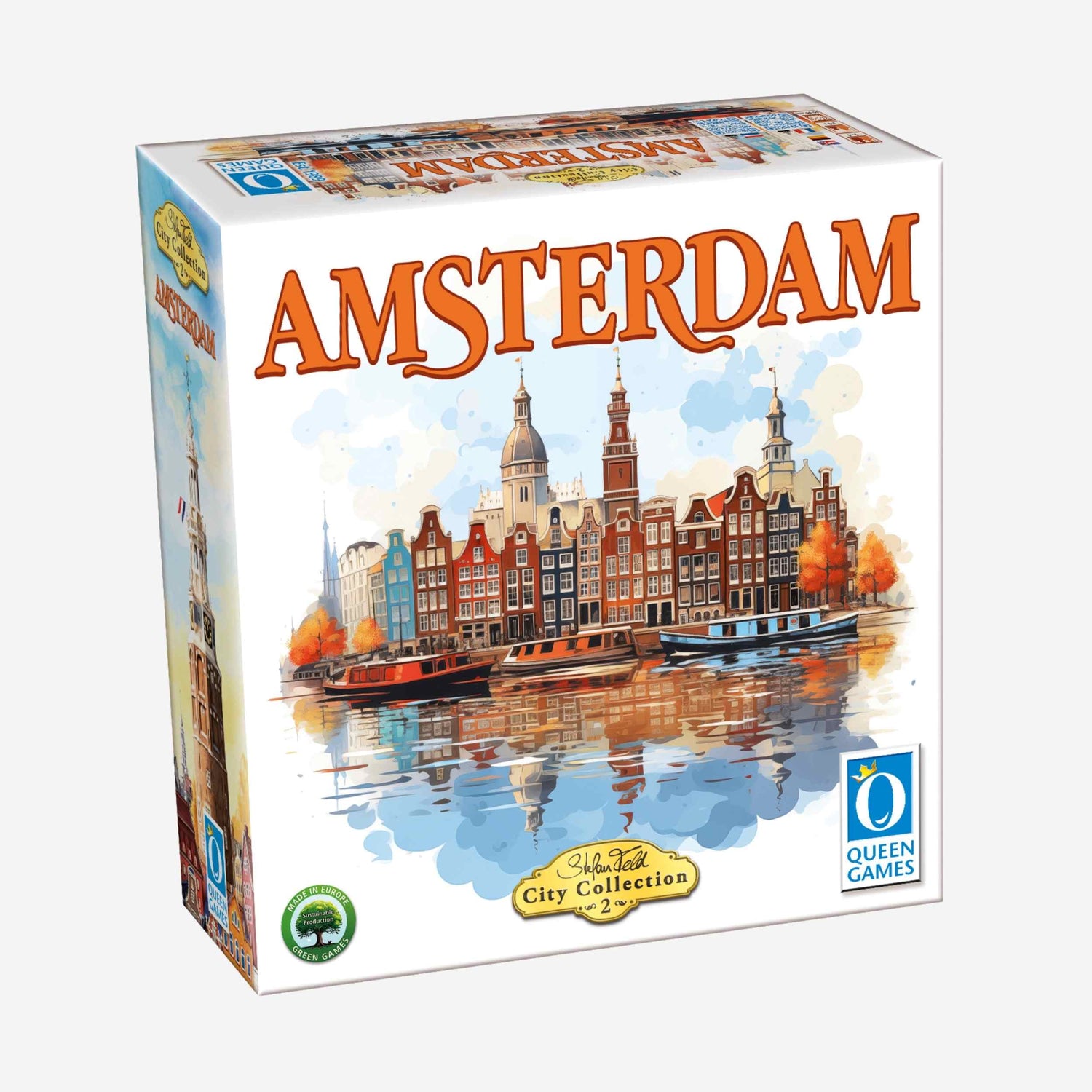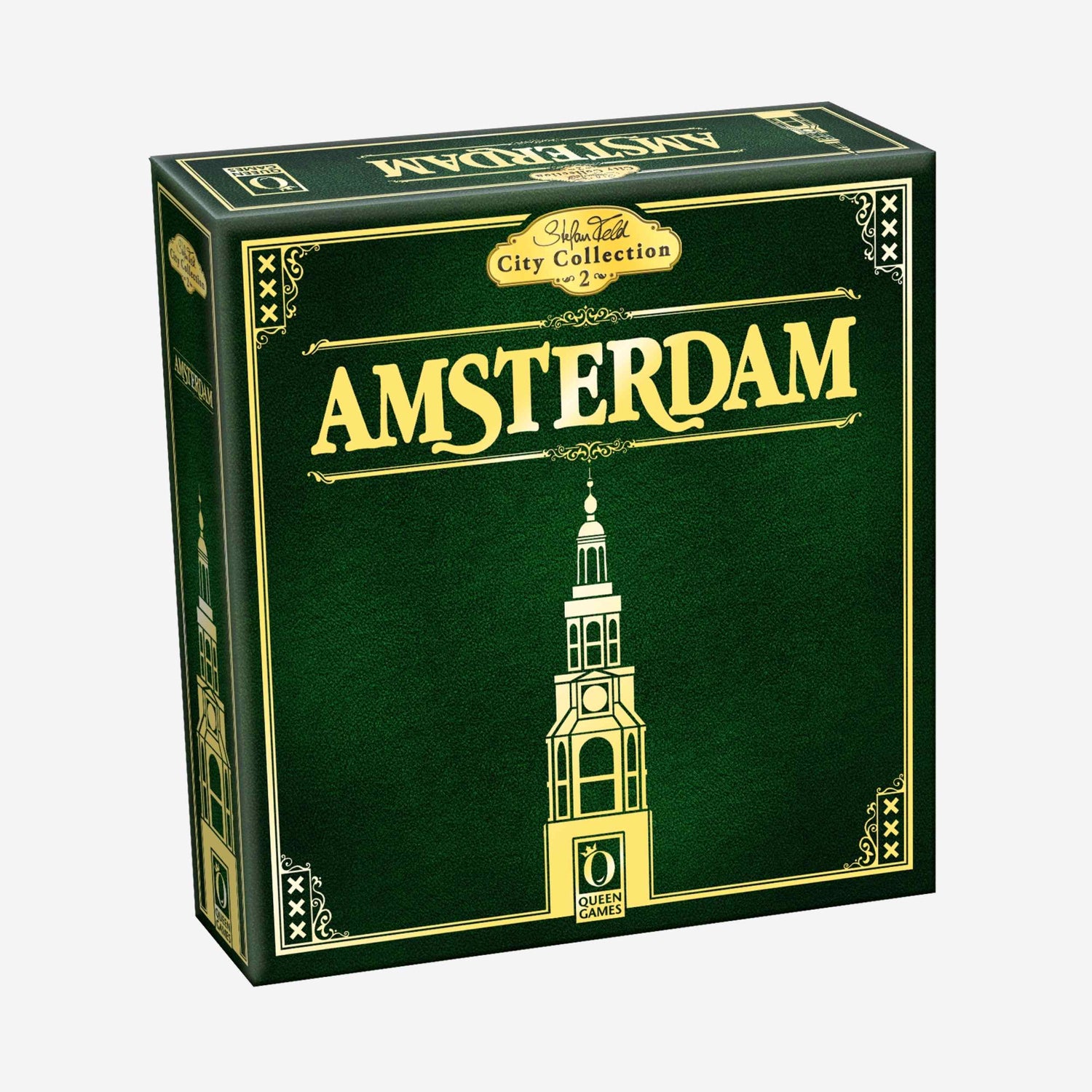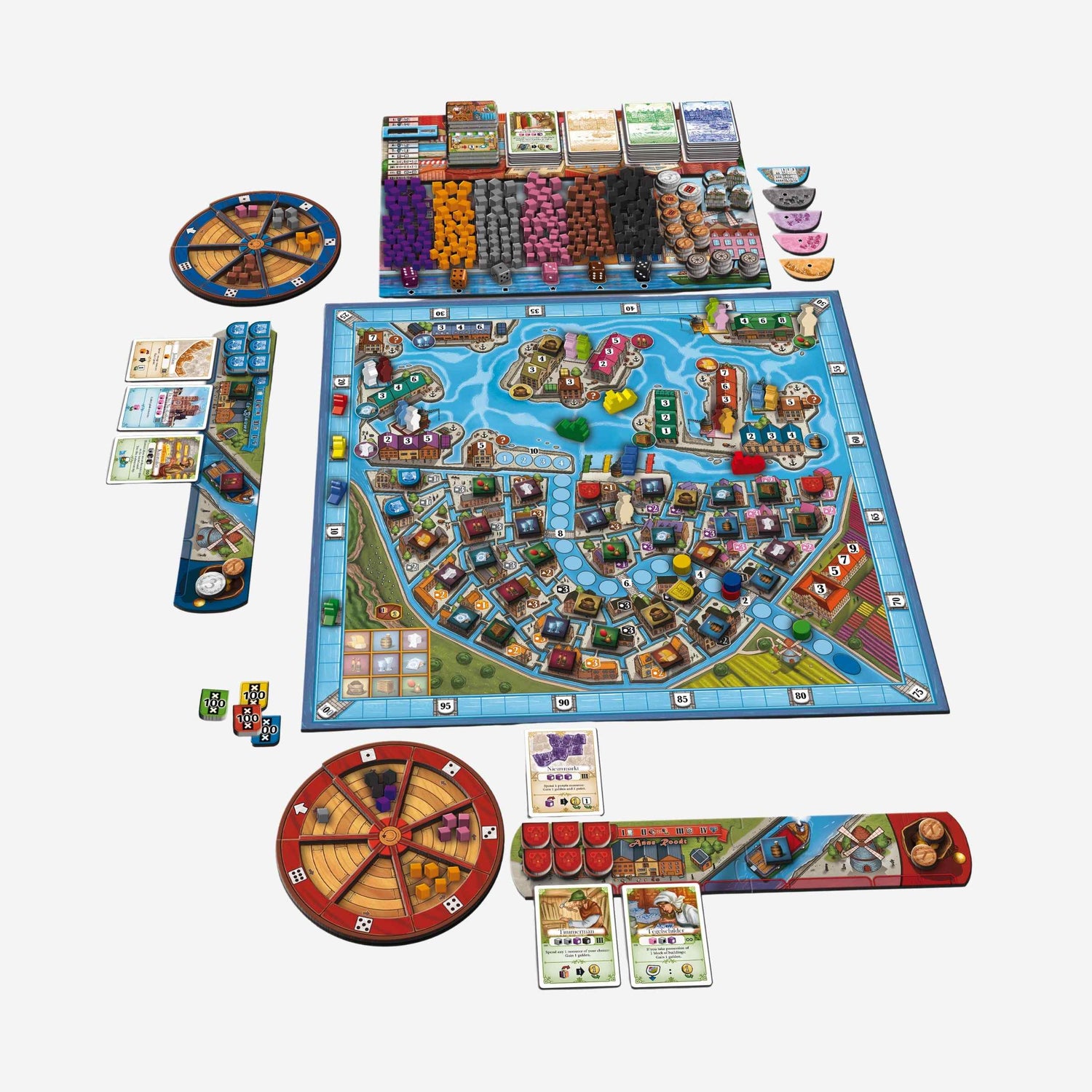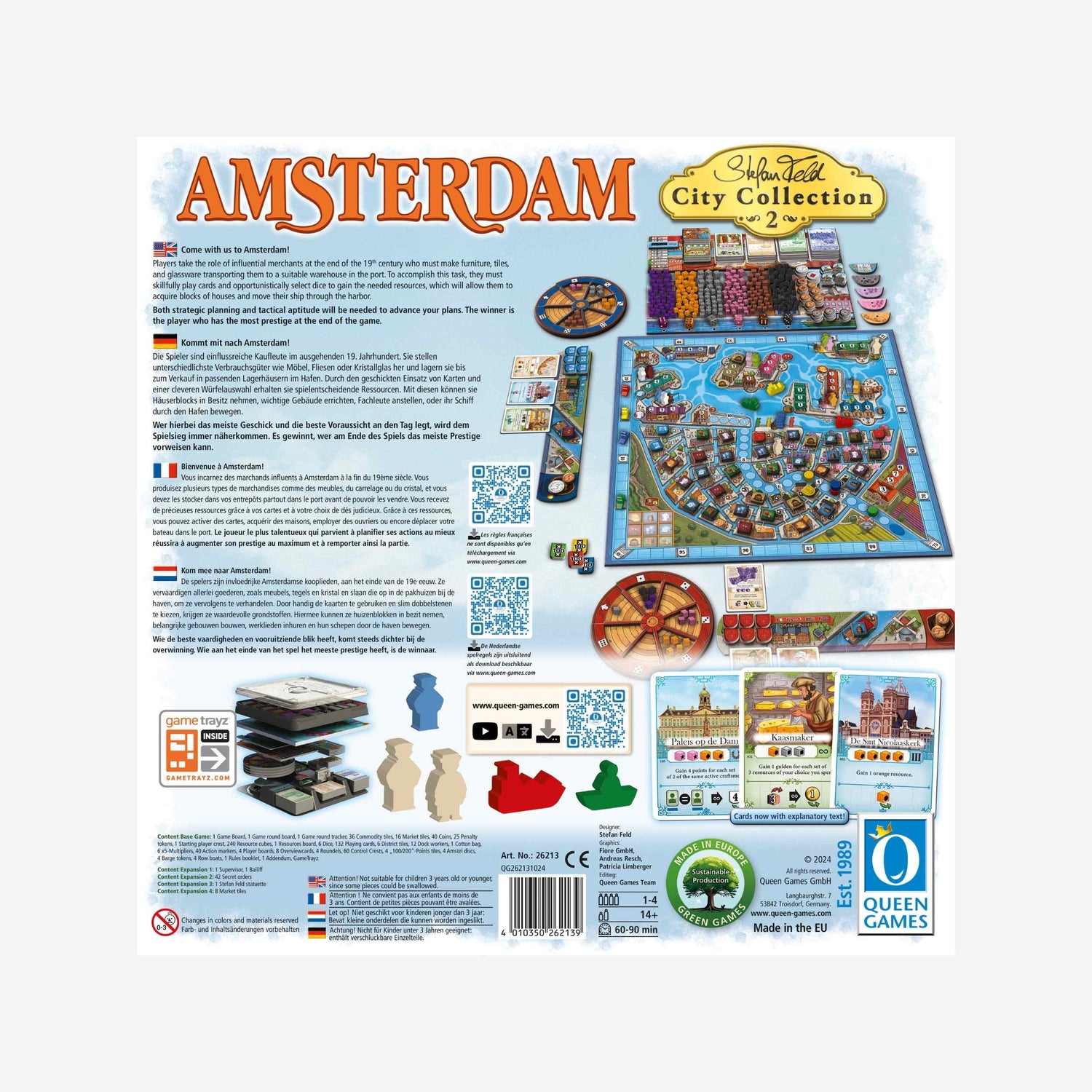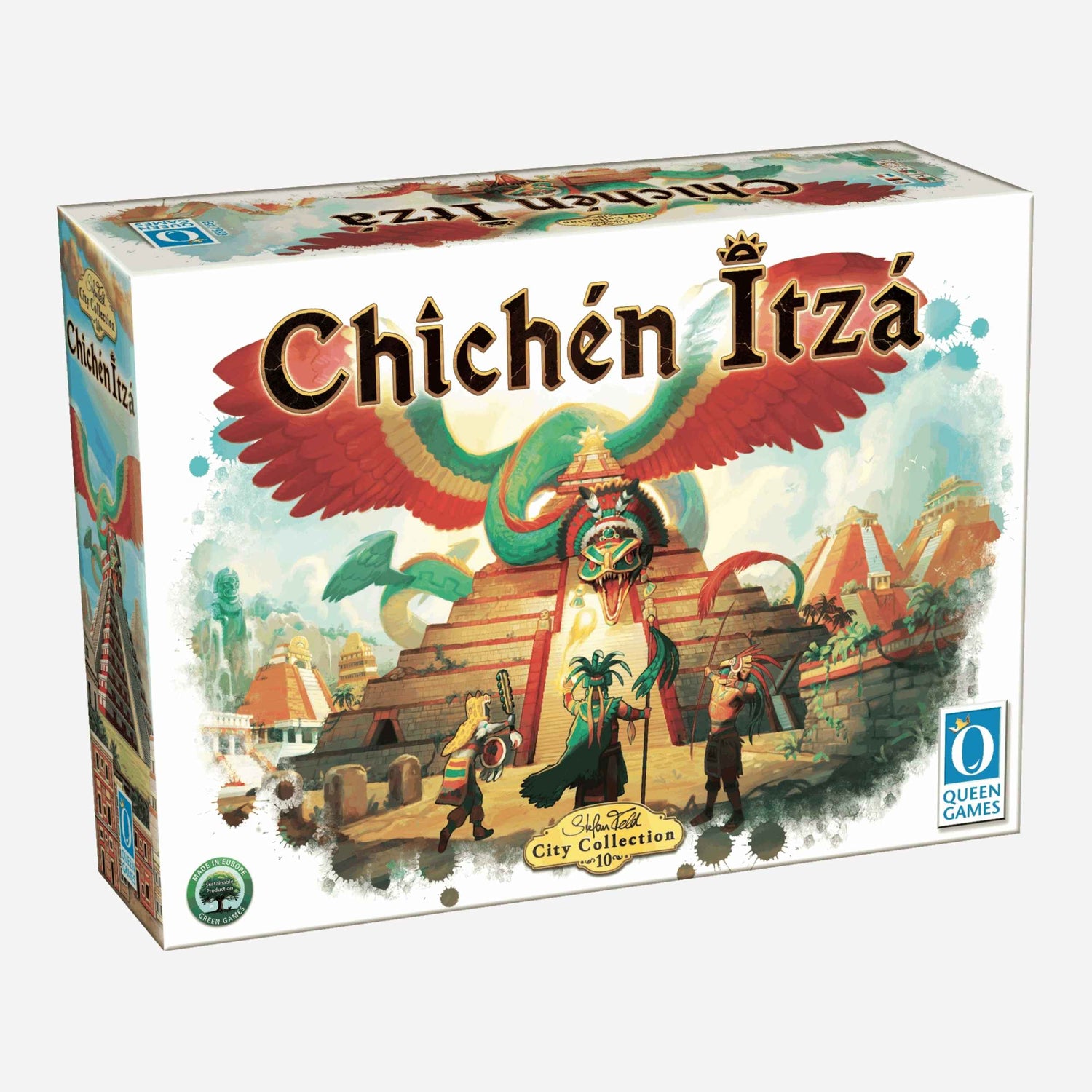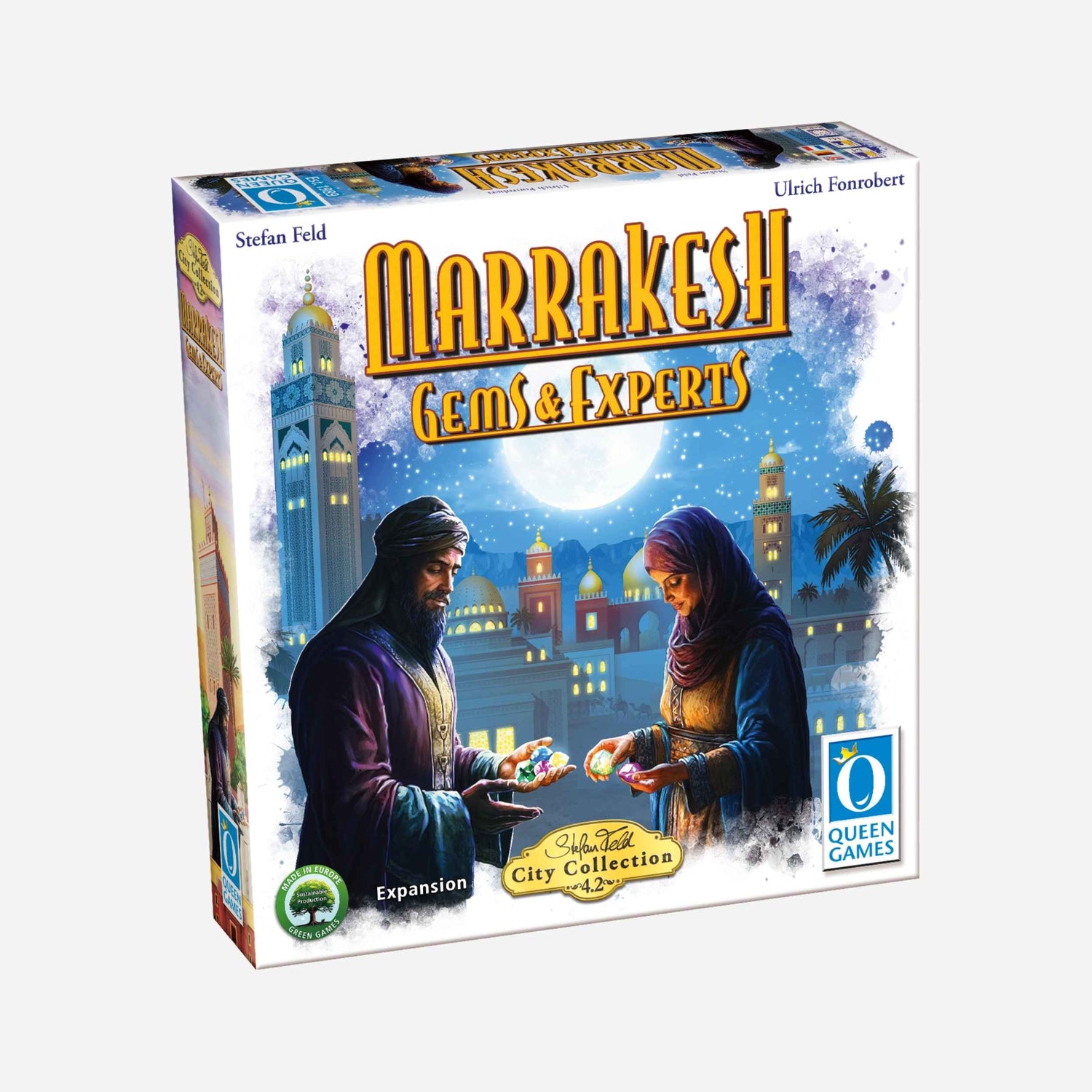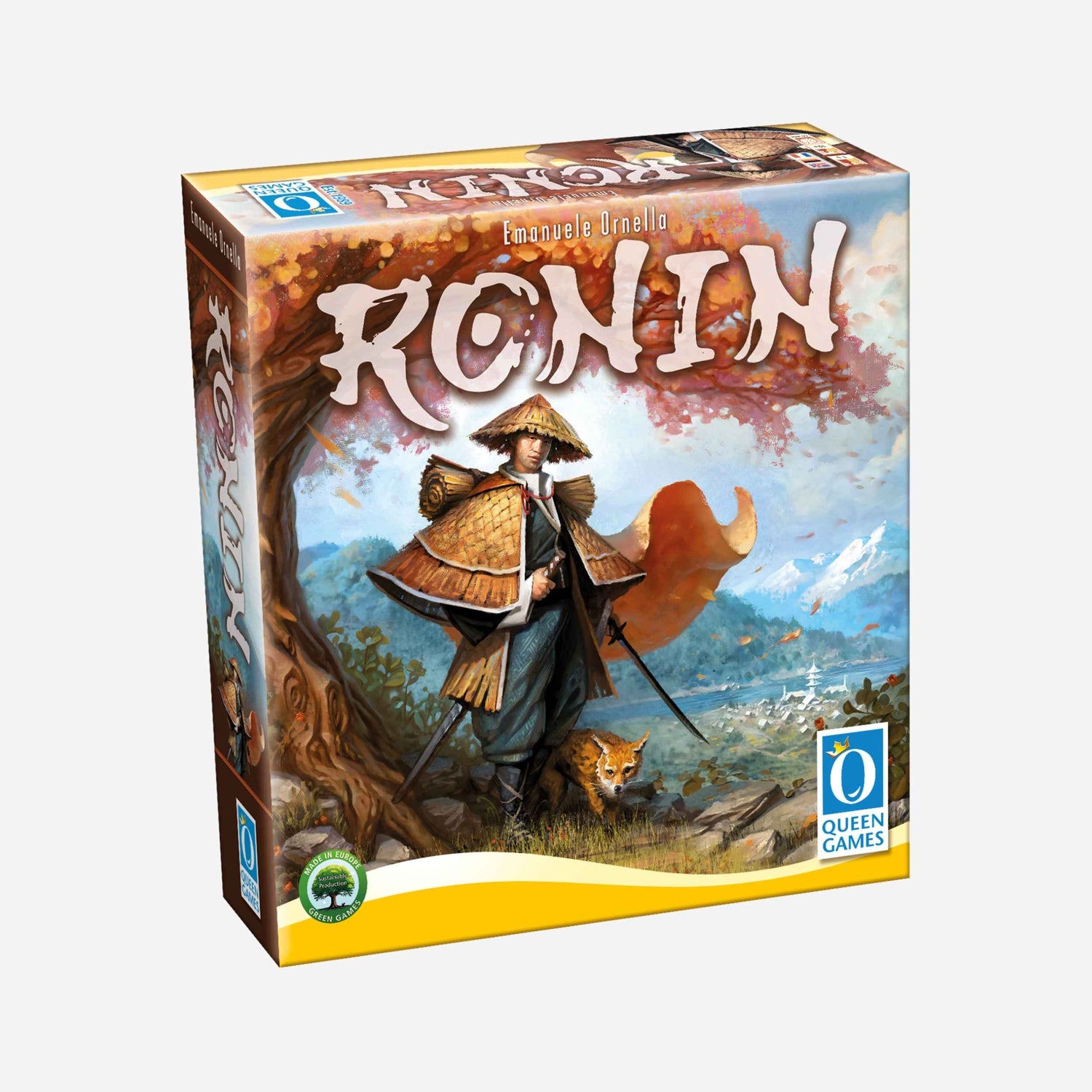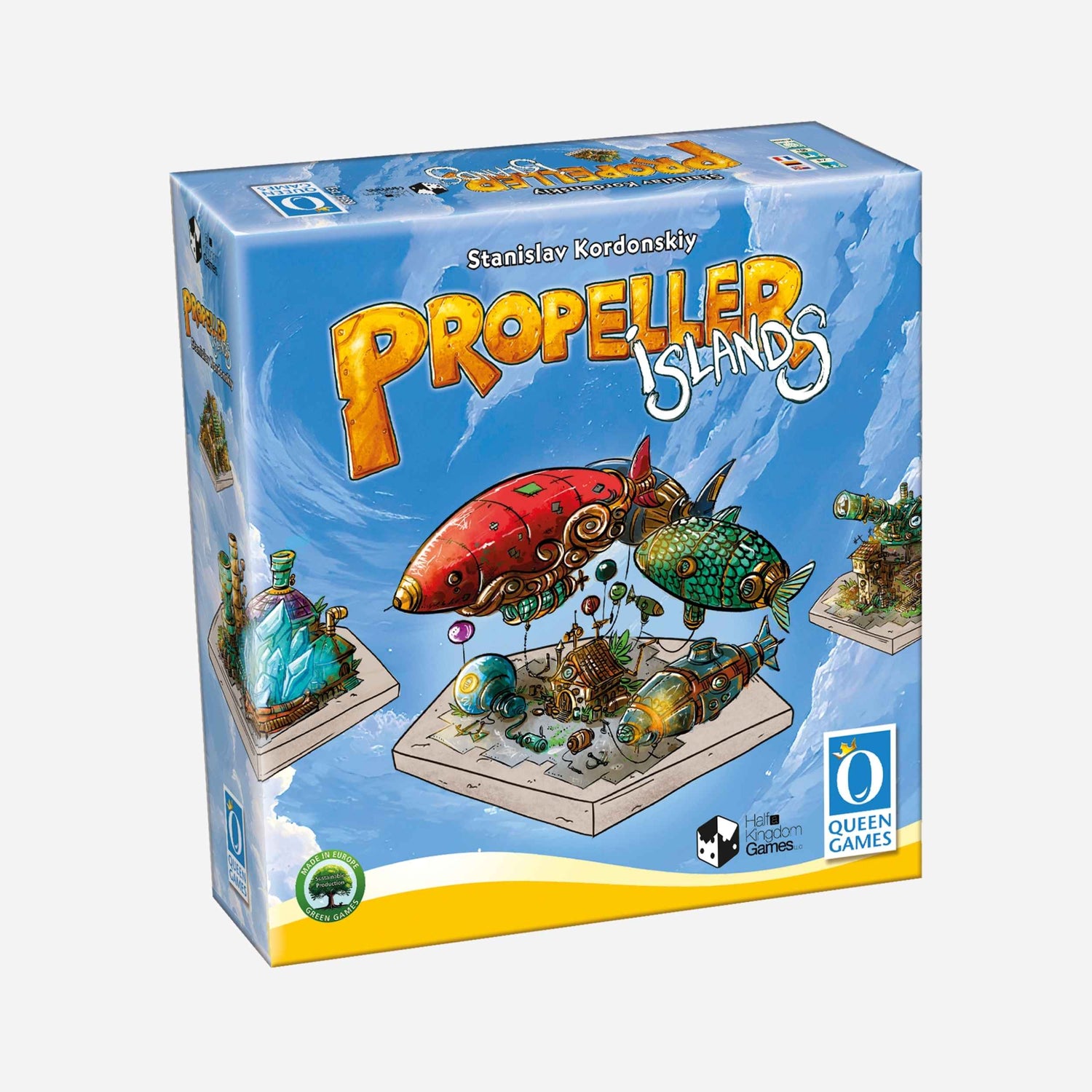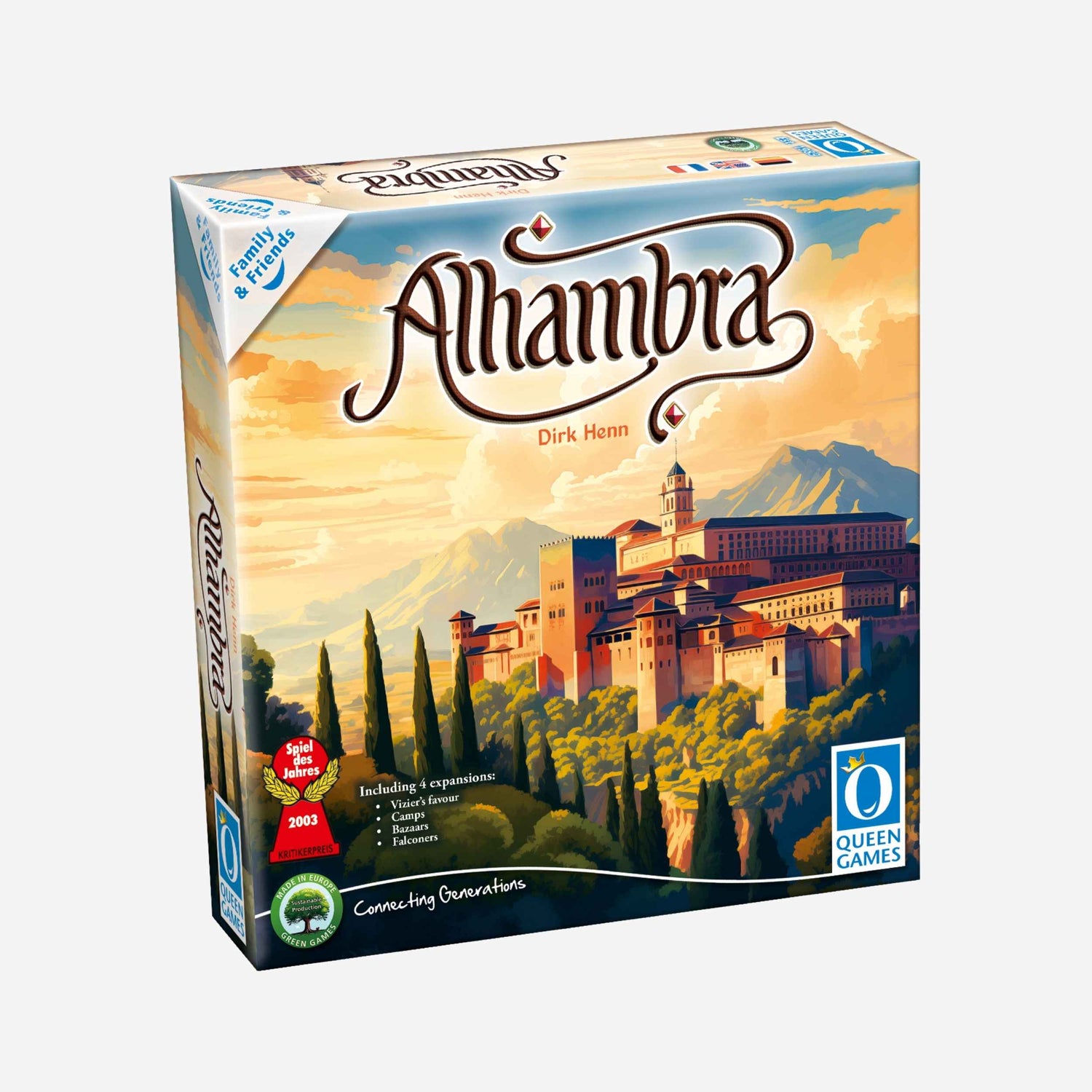Amsterdam - SFCC 2
- Noch wenige auf Lager!
Anleitungen - Download & Hinweise
Technische Daten
- Tiefgehendes Eurogame – strategischer Handel, clevere Planung und Ressourcenmanagement im Amsterdam des 19. Jahrhunderts.
- Innovativer Würfel- und Kartenmechanismus – kombiniere Karten und Ressourcen optimal, um dein Handelsimperium auszubauen.
- Hoher Wiederspielwert – vier integrierte Erweiterungen, darunter Sonderfiguren, Geheime Aufträge und Der Schwarzmarkthändler.
- Teil der Stefan Feld City Collection – das zweite Meisterwerk nach Hamburg.
Willkommen im geschäftigen Amsterdam des ausgehenden 19. Jahrhunderts!
Als einflussreiche Kaufleute errichtet ihr Produktionsstätten, verschifft wertvolle Waren und kämpft um Ansehen und Prestige in der niederländischen Handelsmetropole.
Wählt klug eure Karten und Ressourcen, nutzt eure Handwerker und Gebäude effizient und bringt eure Waren per Lastkahn in die Lagerhäuser des Hafens.
Durch cleveres Timing, geschickte Planung und taktische Entscheidungen steigert ihr euer Prestige und dominiert die Stadt.
Dank vielfältiger Erweiterungen – darunter Sonderfiguren, Geheime Aufträge und der Schwarzmarkthändler – bleibt jede Partie spannend und anders.
Mit seiner reichhaltigen Ausstattung, detailverliebten Grafik und einem flüssigen, verzahnten Spielsystem ist Amsterdam ein Muss für Strategiefans und Sammler.
Amsterdam ist das 2. Spiel in der Stefan Feld City Collection, welches es als Classic Special Edition und als noch hochwertigere Deluxe Version gibt.
Abholverfügbarkeit konnte nicht geladen werden

Spielspaß seit 36 Jahren
Queen Games ist mehr als ein Spieleverlag – wir sind ein Familienunternehmen, das seit über 30 Jahren mit Leidenschaft Brettspiele entwickelt, die Generationen zusammenbringen. Was bei uns im Kleinen beginnt – rund um den Familientisch – wird in jedes unserer Spiele hineingetragen: Gemeinschaft, Qualität und Spielspaß für alle Altersgruppen.

